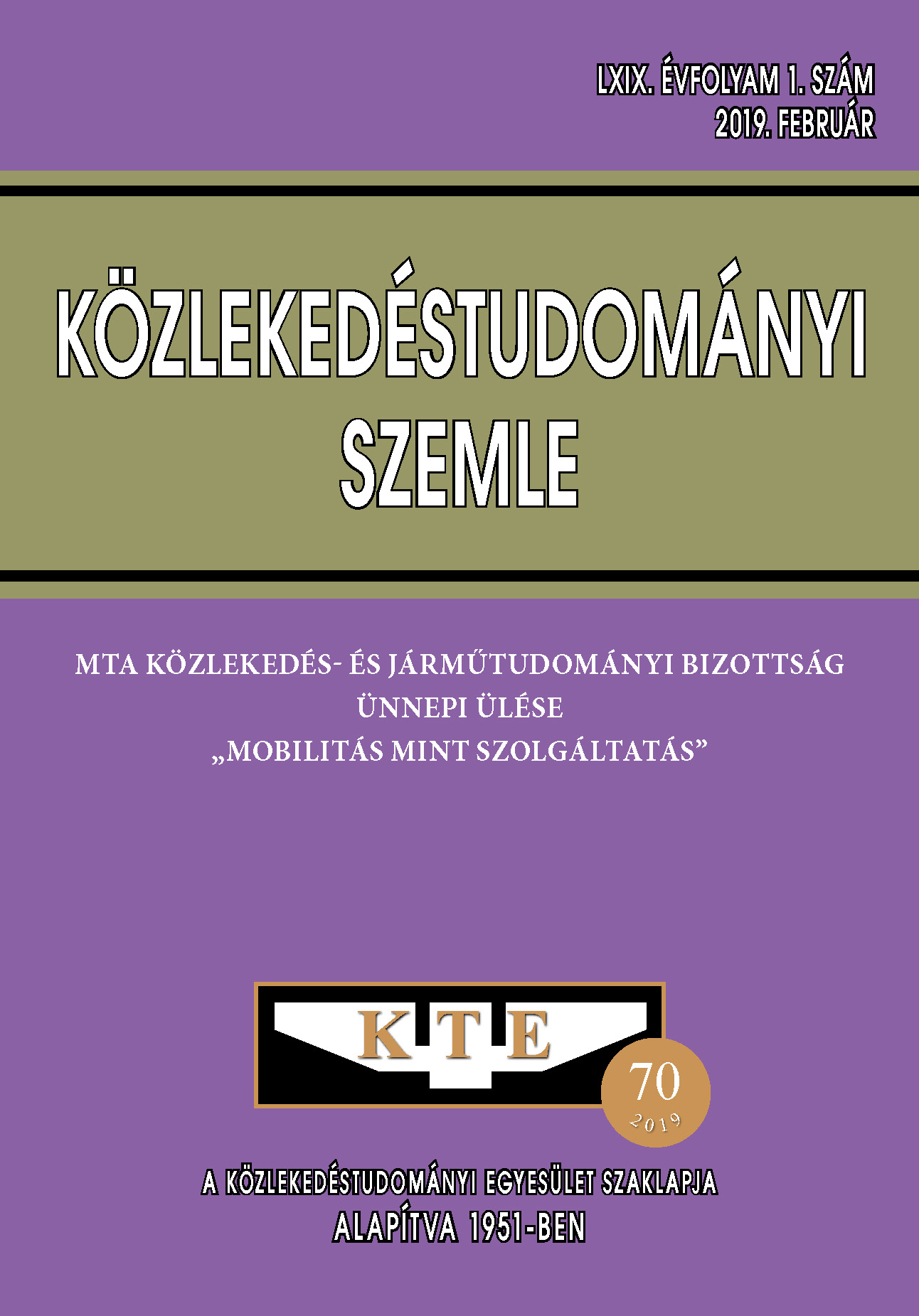COMMENTS ON THE "VÉDA" SYSTEM - a smart camera network for measuring of speed on the roads - (two years after its implementation)
Abstract
The VÉDA Intelligent Road Camera Network, which includes, among other things, 160 mobile speed cameras and 365 fixed cameras monitoring traffic lanes, began operating in Hungary on 5 April 2016. The announcement published on the ORFK website described the entire system, its structure, costs and the traffic violations that can be monitored and recorded [www.police.hu].References
A. Aronson: The effects of automated road safety cameras on speed and road safety. Swedish Road Administration. 2009.
Cheng Keat Tang: Do Speed Cameras Save Lives? London School of Economics 2017.
A. Linder: Speed management in a new scenario. Chalmers University of Technology 19. April. 2016.
Use of speed and red-light cameras for traffic enforcement: guidance on deployment, visibility and signing, DfT Circular 01/2007.
ZSARU RENDŐRSÉGI MAGAZIN 2015.48
Balesethalmozódási helyek azonosítása és veszélyességi sorrendjének meghatározása. Útügyi Tervezési Útmutató (tervezet) MAUT 2017.
Corbett, C., Simon F.: The effects of speed cameras: How drivers respond. (1999) http://www.popcenter.org/problems/speeding/PDFs/corbett1999.pdf
Jankó D.: A közúthálózat közlekedésbiztonsági rangsorolása. (Módszertani kérdések a „közúti infrastruktúra közlekedésbiztonsági kezeléséről”) Közlekedéstudományi Szemle LXIII. évfolyam 4. szám. 2013. augusztus
Safety Camera Partnership. https://en.wikipedia.org/wiki/Safety_Camera_Partnership
Articles published electronically are open access (OJS), freely available online and can be downloaded. Authors of articles are not charged any publication or publishing costs (APC). Users have the right to read, download, copy, print, and search the articles, or share the full text with a link.
Authors must declare that their submission has not been previously published in another journal, that financial support has been acknowledged, and that the list of references is complete and accurate, including specification of URLs and DOIs (if available). When submitting a draft article, each author approves the submitted version. Authors guarantee that the article is their original work. Authors are required to participate in the peer review process, follow the advice of reviewers, meet the prescribed deadlines, and, if any, withdraw the submission or correct errors.
All submitted articles are subject to peer review, where the editors request an independent evaluation from at least one expert, ensuring that the reviewer(s) have no conflicts of interest with the authors. The final decision is made by the Editor-in-Chief, who takes into account the evaluations and the suggestions of the editors. The editors and reviewers treat the submission confidentially.
The publisher and editors are committed to maintaining high ethical standards and to preventing publications that involve research misconduct. They follow the COPE guidelines on such ethical issues.
The authors retain copyright and grant the journal the right of first publication under the Creative Commons License (https://creativecommons.org/licenses/by-nc-nd/4.0), which allows others to share the work, while acknowledging the authorship of the work and the first publication in the journal.
The journal archives all published articles, and the journal's owner, the Hungarian Society of Transportation Sciences, will continue to operate the database even if the journal ceases to be published.















